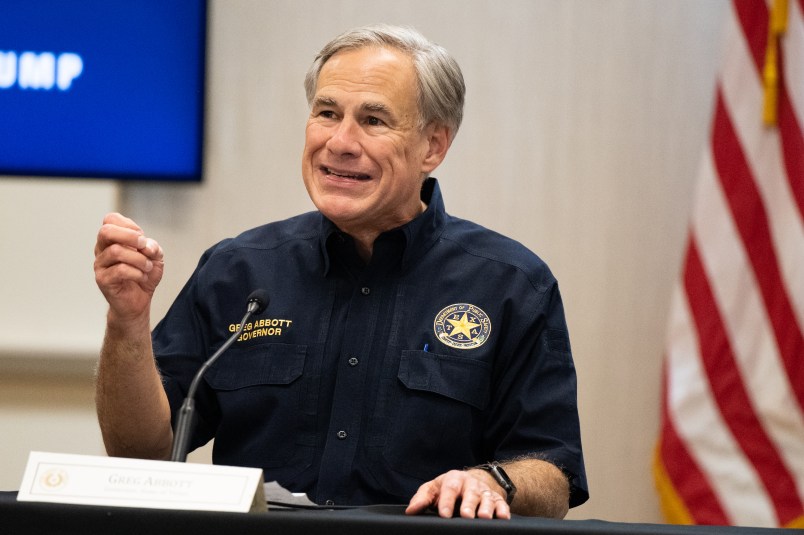Texas Gov. Greg Abbott (R) scheduled a special session Wednesday, likely enabling state Republicans to muscle through a restrictive voting law overhaul after their Democratic counterparts staged a strategic walkout in May to temporarily kill the package.
The session will begin Thursday at 10:00 a.m. and, per Abbott’s proclamation, include action on “legislation strengthening the integrity of elections in Texas.”
In reality, the legislative package Republicans considered this year, known as SB 7, would limit early voting hours, make it more difficult to vote by mail and restrict options like drive-through voting.
It seemed bound for passage on the last day of May, as Republicans enjoy majorities in both chambers and the package had Abbott’s blessing. But the Democratic minority had a plan.
As the session wound down and the evening ticked towards midnight, Democrats slowly but steadily trickled out of the House chamber, heading to a nearby church. By about 10:30 p.m., the Democratic members had left, suddenly depriving the House of the two-thirds needed for a quorum. Lawmakers couldn’t vote on any remaining legislation, including the voting law overhaul.
Their meeting spot was also thought to be chosen in protest of a provision of the bill that would limit early voting hours on Sundays.
“Election Integrity & Bail Reform were emergency items for this legislative session. They STILL must pass,” Abbott tweeted at the time. “They will be added to the special session agenda.”
The Texas Democrats were invited to U.S. Democratic senators’ lunch last month, and met with Vice President Kamala Harris. There, they made their pitch for federal voting laws, pointing to their limited power to combat the Republican majorities in their state.
Currently, debate on the federal level centers on two major pieces of voting legislation: the John Lewis Voting Rights Act, and the For the People Act.
The former would restore the Voting Rights Act of 1965, which conservatives on the Supreme Court first took a hatchet to in 2013, and further hobbled last week. Democrats are still working on it in committee, gathering evidence of voter suppression to strengthen their case as much as possible before the legislation is inevitably challenged in court.
Senate Republicans filibustered the latter, known as S.1, last month. Its resurrection won’t happen with the legislative filibuster in place, something Sens. Joe Manchin (D-WV) and Kyrsten Sinema (D-AZ) continue to ensure.



